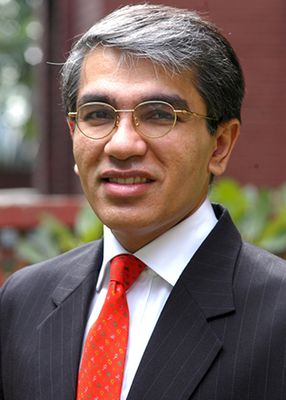There are apprehensions that the national lockdown may have a long-term impact on the Indian economy, like large-scale job losses and uncertainties for the workforce in the country. If the lockdown is not lifted in a few weeks, there will be unbearable pain on the economy, according to Manish Sabharwal, chairman and cofounder of Teamlease Services, one of the largest staffing and human capital firms in the country. The firm has over 1.4 lakh employees currently on its rolls, and have hired 17 lakh people in the last decade. Sabharwal is a member of the National Skill Mission and the Central Advisory Board of Education. He also serves as an independent director on the Reserve Bank of India board. A Wharton School alumnus, Sabharwal talks to THE WEEK about the likely effect of the lockdown on jobs. Excerpts:
Q/ The lockdown seems to be a major challenge for human resource departments across sectors.
A/ The situation is not modellable. Everything we are doing to murder the virus, murders the economy. Even though that is the right [action], it is important to recognise that shareholders or banks do not pay salaries. Customers do. The lifting of the lockdown must be decided by medical professionals, but we must recognise that if the lockdown is not lifted in a few weeks there will be unbearable pain.
Q/ How do you think things will turn out once the lockdown ends and organisations start rethinking their business and hiring strategies?
A/ I do not think anybody should be making firm decisions about jobs cuts or pay cuts before the lockdown [extension] decision. The input of an end, extension or glide path for lifting the lockdown is important for the operational and financial viability for employers. To use a medical analogy, if the lockdown was lifted on April 15, it would have been the equivalent of a bruised knee. If May 1, it will be a broken leg. Anything beyond June 1 will be an amputation. Companies are rivers, not ponds. They are about flow, not stock.
Q/ How are things going to work for different sectors as far as job creation and job losses is concerned?
A/ Where you stand on this issue depends on where you sit. Companies with huge loans will take longer [to recover] than companies with cash or low leverage. Companies that are diversified may suffer more than focused players. Companies in tourism, travel and hospitality may not only take time to recover, but also have to face a new normal. The virus has also brought e-learning, tele-medicine and working from home forward by 10 years. So the impact will depend on how long the crisis lasts.
Every organisation stands to be impacted in some way or the other. But it is difficult to predict how. The essential services sector, one can assume, should be the least affected. However, e-grocers and e-commerce companies have struggled to meet demand as even the existing workforce left. Most organisations have chosen the path of being non-committal about the future.
Q/ What kind of people are going to be preferred in different organisations vis-a-vis those that may be laid off due to the slowdown?
A/ The virus is the equivalent of a natural disaster, though for the first time it is global. A thoughtful calibration of employee costs at this stage should be considered. This crisis will get over and people will remember how each employer behaved as it would be the sensitivity, clarity and maturity with which employers communicate that would differentiate organisations as they recover from Covid-19. Of course, an employer has to survive to succeed, but the communication, fairness and transparency in decision making will go a long way (towards making) employees (willing) to share the pain.
Q/ New ventures or business moves are going to take a hit.
A/ I think some of the hormonal imbalance in funding new ventures was overdue for correction. The winner-takes-all thinking got too many early-stage ventures to sacrifice prudence, but this crisis reminds us that resilience is as important as performance. This kind of a crisis makes the strong stronger and the weak weaker and also reinforces the importance of sustainable business models. A crisis of this kind does not create new trends but amplifies existing ones.
Q/ What kind of jobs will be in demand in the coming year? And which sectors are expected to bounce back fast?
A/ I think the fastest jobs to come back will be bottom of the pyramid jobs in sales, customer service and logistics. Global trade and growth will be muted, but I anticipate that India’s recovery will be driven by domestic consumption. This could include FMCG, financial services, telecom, e-commerce and much else. The industries that will take time to come back will be hospitality, airlines, hotels, construction and retail. How quickly sectors like aviation, tourism and construction can make a comeback will be directly linked to how the country is able to build confidence among domestic consumers. Besides this, there is apprehension in the IT sector given their dependencies on the west for revenues. However, the IT industry also has the relative advantage of being able to continue delivering from a remote environment. One can nonetheless anticipate wavering demand in the IT sector.



